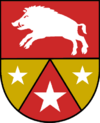History of Littland: Difference between revisions
Jump to navigation
Jump to search
No edit summary |
No edit summary |
||
| Line 20: | Line 20: | ||
|bar1-colour=#669999 | |bar1-colour=#669999 | ||
|bar2-text= | |bar2-text=Langhorn Dynasty | ||
|bar2-from=1050 | |bar2-from=1050 | ||
|bar2-to=1527 | |bar2-to=1527 | ||
| Line 30: | Line 30: | ||
|bar3-colour=#999966 | |bar3-colour=#999966 | ||
|bar4-text= | |bar4-text=Kollund Dynasty | ||
|bar4-from=1550 | |bar4-from=1550 | ||
|bar4-to=1824 | |bar4-to=1824 | ||
| Line 123: | Line 123: | ||
|- | |- | ||
|colspan=2| '''Tribal Period''' | |colspan=2| '''Tribal Period''' | ||
| c. 600 – 1050 | | c. 600 – c. 1050 | ||
|- | |- | ||
|colspan=2| '''Medieval Age''' | |colspan=2| '''Medieval Age''' | ||
| 1050 – | | c. 1050 – c. 1650 | ||
|- | |- | ||
|colspan=2| '''Early Modern Age''' | |colspan=2| '''Early Modern Age''' | ||
| | | c. 1650 – c. 1800 | ||
|- | |- | ||
|rowspan=2| '''Industrial/Modern Age''' | |rowspan=2| '''Industrial/Modern Age''' | ||
| Industrial Period | | Industrial Period | ||
| 1800 – 1910 | | c. 1800 – 1910 | ||
|- | |- | ||
| Modern Period | | Modern Period | ||
| Line 150: | Line 150: | ||
==Tribal Period (7th century - 1050)== | ==Tribal Period (7th century - 1050)== | ||
== | ===Littish migration=== | ||
===Conflict with the Yasic population=== | |||
==Langhorn dynasty (1050 - 1527)== | |||
[[File:Map of Littland in 1050CE.png|right|thumb|380px|Littia saw large amount of conquests during the reign of Einar I]] | |||
===Einar I=== | |||
The concept of a united Littish state was realized under the reign of Einar I, known as Einar the Great in Littland. He greatly expanded the Jarldom of Kaslund and established vassals and marches to guard against Yasic neighbors. In the year 1050 he crowned himself "Fyrste af Littien", which translates to "The First of Littia" or Prince of Littia. The entity he established was known as the Principality of Littia. | |||
===Christianization=== | |||
==Hoffic War (1527 - 1550)== | ==Hoffic War (1527 - 1550)== | ||
== | ===Relationship with Ahrana=== | ||
===Initial conflict=== | |||
===Destruction of Fabel=== | |||
===Aftermath=== | |||
== | ==Kollund dynasty (1550 - 1824)== | ||
==Civil War== | ===State religion and protectorate=== | ||
===Malskic Revival=== | |||
==Aventoft dynasty (1824 - 1900)== | |||
===Helge II=== | |||
===Knud IV=== | |||
===Helge III=== | |||
====Constitution==== | |||
==The Dark Decade (1900 - 1910)== | |||
===March Declaration=== | |||
===Socialist suppression=== | |||
===Assassination of Nordskov=== | |||
==Civil War (1910 - 1913)== | |||
{{Main|Littish Civil War}} | {{Main|Littish Civil War}} | ||
==Modern Day== | ===Aftermath=== | ||
==Modern Day (1913 - today)== | |||
Revision as of 22:27, 13 December 2022
Guiding Timeline
600 —
–
650 —
–
700 —
–
750 —
–
800 —
–
850 —
–
900 —
–
950 —
–
1000 —
–
1050 —
–
1100 —
–
1150 —
–
1200 —
–
1250 —
–
1300 —
–
1350 —
–
1400 —
–
1450 —
–
1500 —
–
1550 —
–
1600 —
–
1650 —
–
1700 —
–
1750 —
–
1800 —
–
1850 —
–
1900 —
–
1950 —
–
2000 —
A timeline to help organize the history of Littland
The history of Littland.
Periodization
The following is a listing of Littish historical periods, from the early prehistoric age extending into the modern historical period.
| Stone Age | Paleolithic | to c. 15000 BCE |
| Mesolithic | c. 15000 – c. 4000 BCE | |
| Neolithic | c. 4000 – c. 1000 BCE | |
| Bronze Age | c. 1000 – c. 400 BCE | |
| Iron Age | Early Iron Age | c. 400 BCE – c. 100 CE |
| Late Iron Age | c. 100 – c. 600 CE | |
| Tribal Period | c. 600 – c. 1050 | |
| Medieval Age | c. 1050 – c. 1650 | |
| Early Modern Age | c. 1650 – c. 1800 | |
| Industrial/Modern Age | Industrial Period | c. 1800 – 1910 |
| Modern Period | 1910 – present | |
Prehistoric Age
Stone Age
Bronze Age
Iron Age
Tribal Period (7th century - 1050)
Littish migration
Conflict with the Yasic population
Langhorn dynasty (1050 - 1527)
Einar I
The concept of a united Littish state was realized under the reign of Einar I, known as Einar the Great in Littland. He greatly expanded the Jarldom of Kaslund and established vassals and marches to guard against Yasic neighbors. In the year 1050 he crowned himself "Fyrste af Littien", which translates to "The First of Littia" or Prince of Littia. The entity he established was known as the Principality of Littia.

